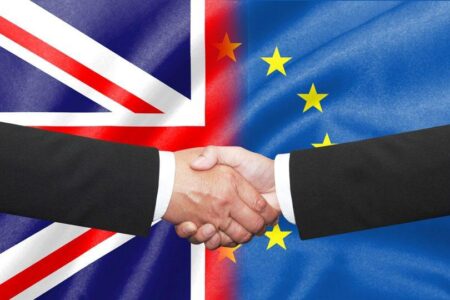Spain’s Strategic Shift: Cancellation of Israeli Ammunition Order
In a pivotal change of direction, the Spanish goverment has opted to annul a contentious order for ammunition sourced from Israel. This decision comes in response to escalating internal demands from various political factions and civil society organizations. The initial procurement had ignited notable debate and protests, primarily due to concerns regarding human rights violations associated with such arms sales. By scrapping this deal, Spain signals a notable evolution in its defense acquisition policies and its approach to the global arms market. This move highlights the increasing sway of public sentiment and advocacy within Spain as it navigates its responsibilities in international conflicts alongside ethical considerations surrounding military supplies. As more information surfaces about the factors leading to this sudden policy reversal, the potential effects on Spain’s diplomatic relations and commitments to global peacekeeping initiatives remain uncertain.
Spain’s Cancellation of Israeli Ammunition Order: A Response to Internal Pressures
The recent cancellation of the order for Israeli ammunition serves as a clear indicator of changing domestic dynamics within Spain. This action is largely viewed as a reaction against rising public demonstrations and political pressure, especially from human rights advocates who have been vocal against military transactions with Israel amid ongoing regional conflicts. A surge in public sentiment has emerged nationwide, with many citizens urging their government to adopt positions that are more consistent with international human rights norms.
This decision illustrates the intricate relationship between governmental actions and societal opinions. Several key elements contributing to this outcome include:
- Increased Activism: Grassroots movements have garnered significant support opposing any form of military collaboration with Israel.
- political Pressure: Opposition parties are utilizing this issue strategically to challenge those currently in power, advocating for alignment with human rights principles.
- Global Awareness: Heightened scrutiny on defense agreements worldwide has prompted Spain to reassess its stance amidst growing ethical considerations.
| Catalyst | Consequences |
|---|---|
| Civic Engagement | A surge in activism pressuring governmental policy changes |
| Political Climate | The opposition leveraging controversy over arms trade issues |
Impact of Spain’s Arms Trade Policy Revision on Global Relations
The cancellation of the procurement agreement for israeli-made ammunition marks a significant shift in Spain’s foreign policy concerning arms trading both within Europe and globally. This decision reflects an increasing domestic demand for adherence to human rights standards among various political groups and civil organizations advocating for ethical governance practices related to military transactions. The ramifications could be considerable; it may deter future partnerships with suppliers whose operations face humanitarian scrutiny as European nations reevaluate their own arms trade policies based on similar ethical frameworks.
Additonally, withdrawing from this deal may alter diplomatic relations between Spain and Israel—historically an ally valuing defense collaborations—potentially leading other nations observing these developments towards reassessing their own stances on arms trading based on humanitarian implications. Such shifts could empower critics who oppose military alliances perceived as violating fundamental rights while simultaneously bolstering anti-militarization sentiments across Europe. As other countries look towards Spain’s example regarding these matters, it remains unclear whether this will initiate a new era in European arms trade policy that harmonizes national security interests with commitments toward upholding international human rights standards.
Strategic Guidelines for Navigating Defense Procurement Amid Human Rights Concerns
given recent developments surrounding defense procurement strategies in Spain, there exists an opportunity at which national security measures can align effectively with ethical imperatives. to adeptly navigate these complexities moving forward, it would be prudent for Spain to establish extensive guidelines prioritizing both operational effectiveness within its armed forces while also respecting fundamental human rights principles.
This framework might encompass implementing stringent vetting procedures concerning foreign defense contracts that emphasize supplier compliance with established international humanitarian laws.
Furthermore,<strong fostering open interaction channels </strongwith relevant human rights organizations will ensure civilian liberties are upheld while allowing procurement decisions undergo thorough examination through diverse perspectives.
additonally,<strong forming multilateral alliances </strongwith fellow EU member states can facilitate sharing best practices related specifically toward responsible defense acquisitions while collectively addressing pressing concerns around humanitarian issues.
Such collaborative efforts could lead toward establishing an<strong EU-wide ethical framework governing defense procurements </strongthat provides clear criteria ensuring uniform assessments based upon suppliers’ records regarding respectfulness towards basic human dignity.
These strategic partnerships can enhance not only how effectively but also ethically positioned does Spanish diplomacy stand during negotiations involving armaments internationally thereby solidifying itself further into becoming recognized leader promoting responsible conduct throughout global military dealings!
Conclusion: A New Chapter for Ethical military Procurement?
The choice made by Spanish authorities halting orders placed previously concerning Israeli-made munitions underscores how substantially internal pressures shape national security policies today! It reflects heightened awareness around moral obligations tied closely together alongside desires aligning purchases made militarily under strict adherence towards ethics! as nations grapple complex geopolitical realities responding actively advocacy efforts emerging domestically—the consequences stemming forth likely resonate beyond just borders impacting future collaborations seen across Europe & beyond! With discussions evolving continuously surrounding armament trades—spain’s position may serve illustrative case study exploring intersections found where morality meets necessity when navigating realms pertaining directly linked relationships existing internationally!
`




